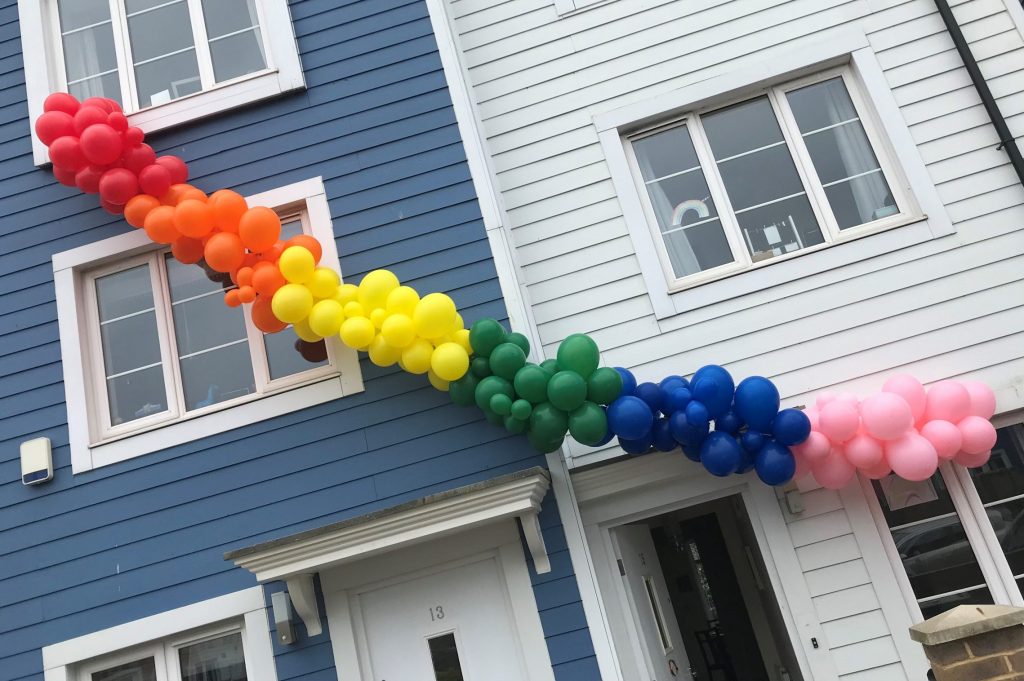
We care a lot
As the coronavirus pandemic continues to affect our daily lives, we are all adapting to new ways of living, working and exercising. There is a new intensity to living, even if much of that living is spent behind our front doors.
For those who must continue to travel to their place of work, this is also true. The men and women who make up our amazing health and care workforce are being challenged as never before, risking their own health and wellbeing as they seek to preserve, protect and sustain others.
Away from the hospitals, clinics and care homes however, there are many more every day stories of dedication, selflessness and compassion. I’m talking about the hundreds and thousands of unpaid or informal carers (including young people and children), doing what they can to care for friends, families and loved ones, right across the country, in these highly unusual circumstances.
Those of you who have read my previous blog posts will know that much of my team’s work is dedicated to finding new and effective ways to support unpaid carers to look after themselves just as well as the people they care for.
So often, these amazing individuals put the needs of others first to the detriment of their own good health. In extreme circumstances, when the capacity to care effectively breaks down, everybody suffers. Now, as covid-19 continues to impact on the old and the vulnerable, supporting our unpaid carers to keep safe, well and protected has never been more important.

Guidance for those who give so much
That’s why I am so pleased we were able to publish new coronavirus guidance recently for anyone who cares for a friend or family member who, due to a variety of ongoing physical and/or mental health conditions, cannot cope without their support.
This publication builds on existing guidance posted on GOV.UK, including ‘stay at home’ and ‘social distancing’ information which also features advice and recommendations on how to protect older and more vulnerable adults.
This new guidance, created in close collaboration with our colleagues from Carers UK and a number of other charities and organisations, details:
- how to create emergency care plans should carers become unwell
- what to do if concerns arise around infection risks from paid carers entering domestic environments and care homes
- how to access alternative care quickly due to sudden ill health.
Advice on how to contact local carer support organisations for help with contingency planning is also included. Visit Carers UK’s site to find out more about these local carer organisations. Further information is available through their online forum.
 United by a common cause
United by a common cause
Regardless of all this guidance and signposting, we want all carers to know they are not alone if the physical and mental burden of caring gets too much.
We really do appreciate, value and recognise all that they do. In these especially challenging times, we must all pull together as friends, families and health and care professionals to support those doing all they can to keep our communities safe and well.
Take all the help offered, seek it out where it is lacking, and make sure local authorities, and health and care services know exactly what you need.
After all, helping you helps them to help many more people stay well – and that’s a mission that unites us all. Stay well, keep safe and save lives.
3 comments
Comment by William Albert Parker posted on
I write from Wales ,and fully understand that this is a devolved matter. However given that all across the UK there are large numbers of sole informal carers,who have been instructed that should they or any other member of the household develop symptoms of Coronavirus,the household should self isolate until they recover(for fourteen days) ,or if their condition worsens then they should contact 111.
Deaths at home associated with Coronavirus up to week 15 (ONS) comprised 44.67% of the total of such deaths in Care homes and at home. This suggests that considerable numbers of patients and carers are not accessing appropriate care in good time or are being discharged back home before they have made a sustainable recovery. They are much more likely to 'wait another day' before seeking treatment because of their inter dependency , which literally is a matter of life or death. In most cases these are people with no professional medical knowledge and no back up team,as will be found in care homes.
All primary informal carers should at the very least have been told that as soon as they, their patient, or anyone else in the household develops any suspected symptoms they should contact a dedicated Social Services department who would have responsibility to monitor and continue to liaise with them daily ,this would hopefully improve the chances of them being admitted to hospital before it is too late.
Now that testing is becoming more available anyone in a care at home household who develops symptoms should be tested for the virus and if positive should be properly isolated with alternative caring arrangements being put in place for the patient. This would also protect Community Nurses and domiciliary care support workers if they are involved in supporting the patient.
Informal carers are vital 'front line staff' and should be treated as such. I hope that whoever reads this can use some influence so that being cared for at home across the UK ceases to carry unnecessary risks for all involved in the model.
I would greatly appreciate a reply. Many Thanks
Comment by Anita Wadhawan posted on
Thank you for taking the time to write and share your comments with us. Policy colleagues always welcome feedback and you raise some very interesting points which have been shared with others in the department.
I hope you will allow us to respond in more detail when resources are not so concentrated on urgent day to day coronavirus activities. Thanks again for your comment and your patience during these unusual times.
Best wishes, Anita.
Comment by William Parker posted on
Thank you Anita not only for your reply but also for all the effort being made by you and your colleagues. I have to say that monitoring of quality of care at home which is of course highly dependent on the fitness of informal carers ,is something which ,to say the least, is worthy of close scrutiny even in (old?)normal times and for the future.
Kind regards,
Bill Parker
PS I hope you have not received this twice.